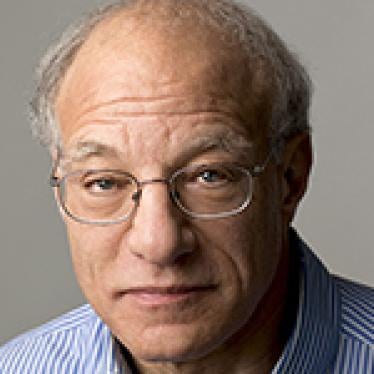Slobodan Milosevic conducted his legal defense much as he did his political life: with bombast, bullying and belligerence. Observing Milosevic for weeks and weeks in The Hague in the first half of his four-year trial, it became quickly clear to me that he was undertaking a political offensive in the courtroom rather than presenting a rebuttal of the 66 charges he faced.
In his opening statement in February 2002, Milosevic ignored the hundreds of thousands killed and the millions forced from their homes in the four wars he lost while asserting Serbian nationalism. Instead, playing to the audience back home, he seemed intent on securing his place in the hearts and minds of Serbs by castigating NATO's air war in Yugoslavia. The defiant tone continued throughout, as he badgered witnesses, insulted judges and prosecutors, and denied the chamber's right to try him.
But although his death - and the absence of a verdict - denies the victims of horrific crimes in the former Yugoslavia final judgment, it should not overshadow a broader accomplishment. Milosevic's death may have pre-empted a verdict, but he did not escape the process of justice. While the victims of the Balkan wars will not get the satisfaction of hearing a verdict in this case, the man who flaunted his power as Serbia's strongman died under indictment, in custody and with a long and official enumeration of his alleged crimes on record for posterity.
The trial before the International Criminal Tribunal for the Former Yugoslavia amassed enormous evidence of Milosevic's role in genocide, war crimes and crimes against humanity committed during the ethnic cleansing that his policies set in motion between 1992 and 1999 in Bosnia, Croatia and Kosovo. His death sets back efforts to show that ethnic cleansing was not the product of one ethnic group but of political programs forged by individual leaders. It does not undo, however, the achievements of more than 10 years of the tribunal's work in bringing him and other high-level officials to justice.
Milosevic's death and the termination of his trial also underscore the importance of identifying the appropriate lessons to take from the four years of proceedings. International criminal courts trying senior officials for massive crimes face inherently complex, thorny and time-consuming challenges. On top of the sheer scale of atrocity crimes, there is the difficulty of proving the guilt of a former senior official who was nowhere near the multiple crime scenes.
Under the best of circumstances, these trials will be lengthy. In this context, international prosecutors should consider focusing their indictments on the most representative crimes for which there is the strongest evidence. In retrospect, separate Milosevic trials on the crimes committed in Croatia, Bosnia and Kosovo would have been more manageable than one combined proceeding.
But the trial's extreme length was due to more than the burden of the 66 counts of crimes of against humanity, war crimes and genocide contained in the joint indictment. There were repeated delays because of court-ordered adjournments to address Milosevic's health problems. In addition, from the public gallery I witnessed the judges - with the best of intentions - bending over backwards to respect Milosevic's invoked right to represent himself far beyond the point where he had blatantly abused that important but qualified right.
As a human rights lawyer concerned with fair trial rights, I was dismayed to see Milosevic allowed to ask the same question of a witness over and over again, badger and bully witnesses, particularly those of lower social standing, and make interminable political speeches that had no relevance to the matter of his guilt or innocence on the charges. During the prosecution phase of the trial, Milosevic used far more time in "rebuttal" than the prosecutors used in presenting their evidence.
Those accused by international courts cannot be allowed to obstruct justice by deliberately delaying and muddling the process. At international tribunals, judges need to assert their control of the courtroom to manage difficult proceedings while fully respecting the right of fair trial for the accused. In future trials, the judges will need to better calibrate the right of an accused at trial with the overarching interest of justice in a fair, efficient and well-managed proceeding.
When an accused dies before a verdict is reached there is an inevitable sense of incompleteness. In this important case, where so much was at stake, that sense is much greater, even though important advances were made. When the tribunal tries others - including Ratko Mladic and Radovan Karadzic, whose apprehension is long past due - it can put to use what it learned from the Milosevic case.
There is one message that the aborted trial of Slobodan Milosevic, with its admitted shortcomings, cannot obscure: Absolute impunity for crimes that shock the conscience of humankind, regardless of the rank of the accused, is a thing of the past.







